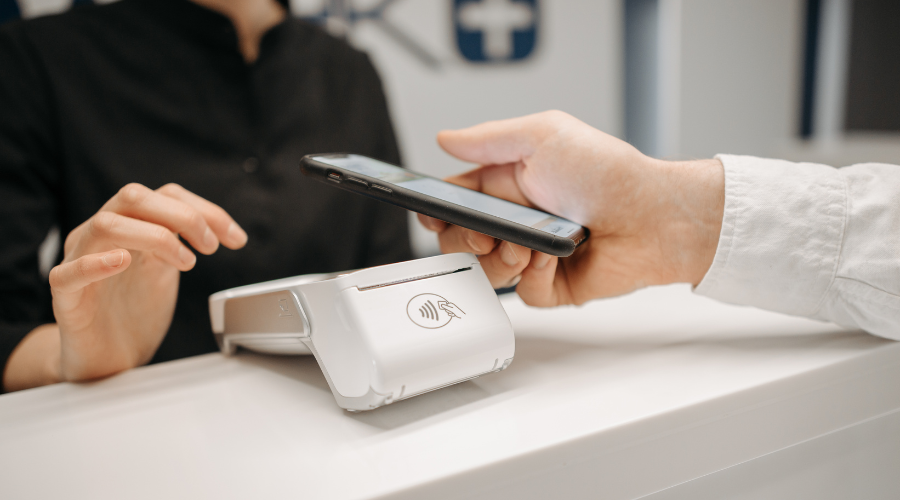Faster, Safer Payments for Builders and Contractors

In the modern construction industry, efficiency, safety, and convenience are paramount. Whether overseeing industrial projects or residential developments, contractors, suppliers, and clients alike are seeking solutions that streamline transactions and reduce friction in payments. Among the most transformative tools in this domain are contactless POS systems—payment solutions that leverage Near Field Communication (NFC), mobile wallets, and tap-to-pay cards to facilitate instant, secure payments.
Why Contactless Payments Are Gaining Ground in Construction
Construction has long been a sector where large sums of money move between contractors, suppliers, and subcontractors. Traditionally, payments involved checks, bank transfers, or cash, all of which carry inefficiencies:
- Delayed Transactions: Waiting for bank clearance or processing time can stall projects.
- Security Risks: Handling large cash sums or checks increases the potential for theft or fraud.
- Administrative Burden: Manual recording of payments and reconciliations consumes valuable time.
Contactless payment systems mitigate these issues by allowing instant payments, reducing the need for physical cash, and offering real-time tracking of transactions.
Industrial Construction: High-Value Transactions Simplified
In industrial construction projects, the scale and complexity of payments can be enormous. Materials such as steel, concrete, and machinery often come with hefty price tags, and transactions can involve multiple suppliers and subcontractors.
Benefits of contactless payments in industrial construction include:
- Speed: Payments for bulk materials, equipment rentals, and labor can be processed on the spot.
- Security: NFC-enabled cards or mobile wallets minimize exposure to fraud and theft.
- Record-Keeping: Every transaction is digitally recorded, simplifying audits and financial tracking.
- Remote Payments: Supervisors on-site can approve and complete payments without returning to the office.
By integrating contactless POS systems, industrial contractors can maintain a smoother cash flow and avoid project delays caused by slow payments.
Residential Construction: Enhancing Client and Vendor Experience
In residential construction, the payment landscape differs slightly. Payments often include smaller transactions for materials, design consultations, and subcontractor services. Here, the focus shifts toward convenience and customer satisfaction.
Advantages of contactless payments in residential projects:
- Client-Friendly: Homeowners and clients can pay using smartphones or tap-to-pay cards, improving their experience.
- Flexibility: Payments can be made on-site, on delivery of materials, or even from remote locations.
- Transparency: Real-time digital receipts provide proof of payment, reducing disputes.
- Integration: Many POS systems integrate with accounting software, simplifying invoicing and budgeting.
For builders and contractors, providing multiple contactless payment options not only expedites collections but also enhances professionalism and trust with clients.
Top Contactless Payment Systems for Construction
When selecting a POS system for construction projects, several factors must be considered, including reliability, security, and ease of use. Popular solutions include:
- Square POS: Ideal for small to medium construction projects, offering mobile card readers and instant payment processing.
- Clover POS: Supports both residential and industrial use, with inventory management and digital receipts.
- PayPal Zettle: Allows seamless mobile payments and invoicing, suitable for subcontractor payments.
- Stripe Terminal: Excellent for high-volume transactions, with strong security and integration options.
Each system enables fast, contactless transactions and supports a range of payment methods including NFC cards, Apple Pay, Google Pay, and other digital wallets.
Overcoming Challenges
While contactless payments provide numerous benefits, construction projects face unique challenges:
- Connectivity Issues: Remote sites may lack stable internet, requiring POS systems with offline modes.
- User Training: Crew members must be trained to use POS devices efficiently.
- Integration: Payments must sync with project management and accounting software to avoid discrepancies.
These challenges are not insurmountable; modern POS providers offer solutions specifically tailored to industrial and residential construction environments.
Building the Future of Construction Payments
Contactless payment systems are no longer optional—they are becoming essential tools for modern construction. By enabling fast, secure, and transparent transactions, they reduce administrative burden, improve cash flow, and enhance relationships with clients and suppliers.
For industrial and residential construction, embracing top-pleasant contactless POS systems ensures that financial operations run as smoothly as the construction projects themselves. In a field where time is money, and precision matters, contactless payments are paving the way for a more efficient, secure, and client-friendly industry.
